Life
Sign up for our newsletter
We summarize the week's scientific breakthroughs every Thursday.
-
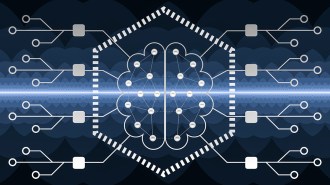 Artificial Intelligence
Artificial IntelligenceAn AI that mimics how mammals smell recognizes scents better than other AI
An artificial intelligence modeled after the neural circuitry in mammalian brains can keep learning new aromas without forgetting others.
-
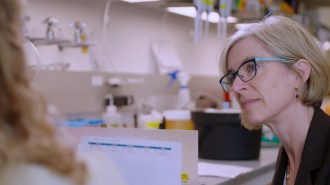 Genetics
Genetics‘Human Nature’ offers CRISPR novices a basic introduction
A film that introduces people to CRISPR aims to spark debate about how to use the gene editor.
-
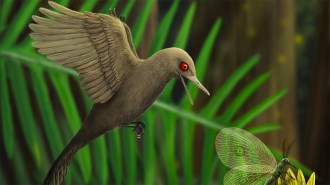 Paleontology
PaleontologyThis ancient dinosaur was no bigger than a hummingbird
The skull of one of these Mesozoic Era birds — the tiniest yet known — was discovered encased in a chunk of amber originally found in Myanmar.
-
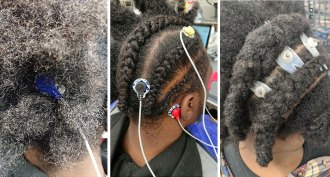 Science & Society
Science & SocietyNew electrodes can better capture brain waves of people with natural hair
Electrodes weren’t designed for people with thick, curly hair. A redesign is needed, says engineer Pulkit Grover.
-
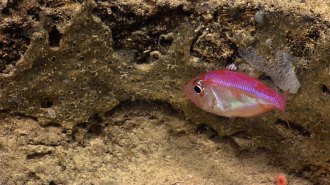 Life
LifeThis is the first deep-sea fish known to be a mouthbreeder
Scientists found over 500 eggs attached to the inside of a parazen fish’s mouth.
By Jake Buehler -
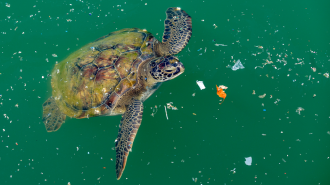 Animals
AnimalsSea turtles may confuse the smell of ocean plastic with food
Sea turtles respond to the smell of plastic that’s been in the ocean similarly to food, suggesting the reptiles may end up eating the harmful debris.
-
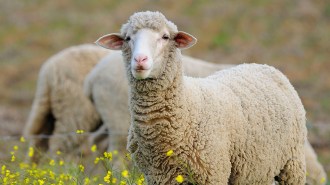 Neuroscience
NeuroscienceBrain waves common during sleep also show up in awake sheep
Sleep spindles, thought to help solidify memories in people, may do similar work during wakefulness if these daytime ripples occur in humans.
-
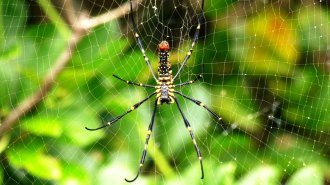 Animals
AnimalsBright yellow spots help some orb weaver spiders lure their next meal
Experiments with cardboard arachnids suggest that orb weaver spiders have evolved yellow colorations on their undersides to attract bees and moths.
By Yao-Hua Law -
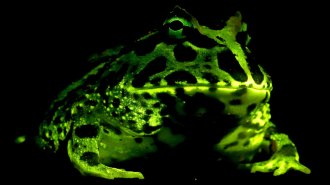 Animals
AnimalsGlowing frogs and salamanders may be surprisingly common
A widespread ability to glow in striking greens, yellows and oranges could make amphibians easier to track down in the wild.
-
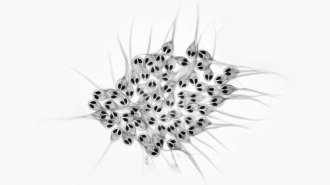 Life
LifeA distant cousin of jellyfish may survive without working mitochondria
A tiny creature that parasitizes salmon is the first known multicellular eukaryote without a mitochondrial genome, a hallmark of complex life.
-
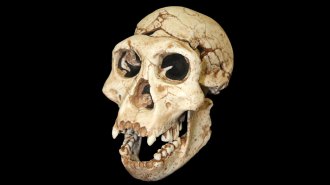 Humans
HumansThe earliest known hominid interbreeding occurred 700,000 years ago
The migration of Neandertal-Denisovan ancestors to Eurasia some 700,000 years ago heralded hookups with a resident hominid population.
By Bruce Bower -
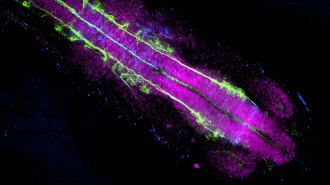 Life
LifeHow African turquoise killifish press the pause button on aging
The fish’s embryos can enter a state of suspended growth to survive dry spells. A study shows that state protects them from aging, and hints at how.